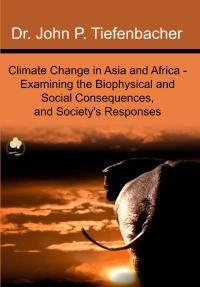Book Abstract
Climate Change in Asia and Africa: Examining the Biophysical and Social Consequences, and Society's Responses presents a regionally focused, interdisciplinary collection that explores how shifting climates are reshaping both environments and human lives across two continents facing significant vulnerabilities .
By integrating biophysical analyses with grounded social-policy studies, Climate Change in Asia and Africa emphasizes that adaptation must be contextually tailored?rooted in local knowledge, responsive to gendered dynamics, and supported by robust capacity-building. It calls for bridging data and infrastructure gaps, strengthening resilience pathways, and aligning development policies with environmental realities.
Livelihood and Food Security: Agricultural communities face threats to crop yields and small-holder livelihoods in Uganda and Bangladesh, compounded by weak economic safety nets . Displacement and Gender Impacts: Climate-driven floods in Nigeria result in temporary displacement of women and children; failing infrastructure exacerbates gender disparities such as increased care burdens. Local Knowledge as Response: Farmer-led precipitation forecasting in Kenya and community adaptation strategies in Indonesia highlight the efficacy of indigenous knowledge for resilience-building.
